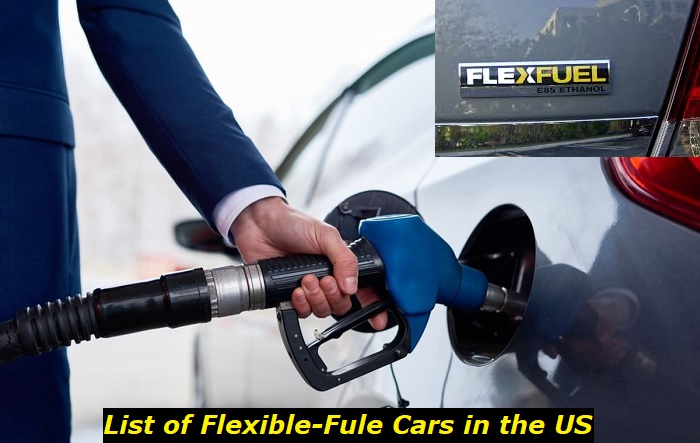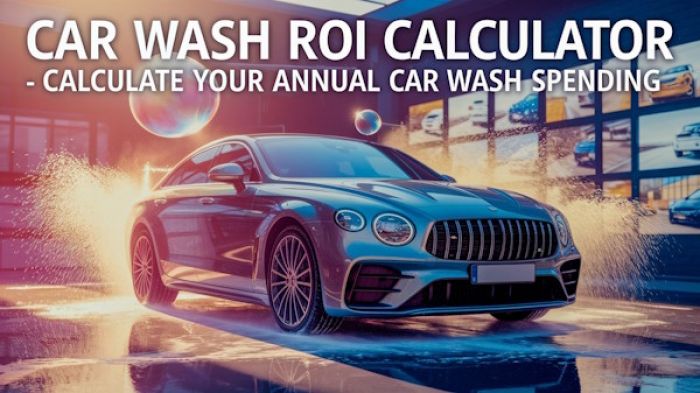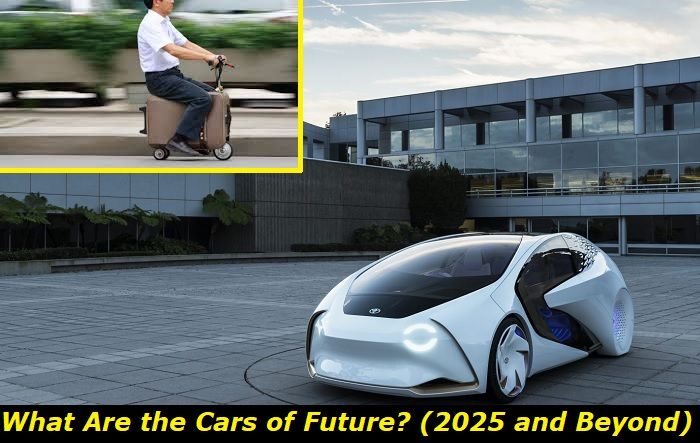Although the world slowly goes electric and turns away from gasoline-powered cars, lots of manufacturers still try to save internal combustion engines somehow and prolong their life for several more years. E85 fuel is one of the alternatives to traditional gas which is eco-friendlier and more affordable, in most countries.
Fuel-related mistakes highlights
- Level of importance:Medium
- Can you drive?Usually, yes
- DIY inspection:Possible
- DIY repairs:Mostly,impossible
- Price of repair:$100 - $650
- Commonreasons:Wrong fuel, wrong repair procedures
- How to fix:Never drive the vehicle with the wrong fuel in the tank, always go for professional help

What cars can consume E85 instead of gas?
Most vehicles that you can charge with E85 may drive using both traditional gas and methanol solution, and such cars are called Flexible-Fuel Vehicles. E85 is essentially ethanol (85%) and also 15% of gasoline or other hydrocarbon substance.
We've found different new vehicle models available in the US that still can run on ethanol fuel. Let's look at this list!
Pickup trucks:
- Chevy Silverado with the 5.3L V8 engine
- Ford F-150 with the 5-liter V8 and also the 3.3L V6
- GMC Sierra with the 5.3L V8
- Ford Super Duty trucks equipped with 6.2L or 7.3L V8 engines
- GMC Savana with the 6.6L V8.
SUVs:
- Ford Explorer equipped with the 3.3L V6
- Mercedes-Benz GLA200 with the weird 1.3L engine.
Unfortunately, that is all we could find at dealerships in the US. So, big engines by GM and Ford still can use E85 and some other super technological engines do this. We should say that hundreds of models in Brazil can use ethanol fuel as well as dozens of new models in Europe. But in the American market, this trend for flexible-fuel cars ended approximately in 2010. After that, fewer cars have been manufactured with this option.
What about older vehicles?
If you are willing to buy a used car, you have a much wider choice of cool models with flexible-fuel engines that can consume E85.
Here's what springs into our mind:
- Dodge Journey (2013 and newer) with the 3.6L engine
- Ford Focus (2012-2019) equipped with the 2.0L engine
- Chevy Impala with the 3.6L V6 (after the 2012 model year)
- Buick Regal with the 2.0L Turbo (2011 and newer cars)
- Ford Fusion and Ford Escape 2010 model year with 3.0L V6
- Chevy Malibu with the 2.4L engine (2010 and newer)
- Chevy HHR with both 2.2L and 2.4L engines
- Lincoln Navigator with the 5.4L engine
If we keep digging into older cars, we can find dozens of other models. But it doesn't make much sense because you aren't likely to buy a car that is older than 15 years. So, these are some of the popular vehicles that you can still get used and then charge them with E85 instead of gasoline.
Why so few new cars with flexible-fuel engines?
You may wonder why so few vehicles are still available with the option of using ethanol fuel. The answer is simple: E85 costs about 10% more in the US than traditional gasoline. In 2010, the situation was different and the ethanol fuel cost 10-15% cheaper than gas. So, people were willing to buy a flexible-fuel car to save some money on gas.
Now, it doesn't make sense and manufacturers offer flexible-fuel engines just because these engines are old and they haven't yet been updated after 2010.
We see that flexible-fuel cars are still popular in other countries like Brazil and in some European states, so if E85 drops in price in the US, we will immediately get a lot of these engines on the market. The technologies of E85-consuming engines are here and they are being developed even now.
Why do people still want E85 cars?
Some specialists claim that ethanol fuel is good for performance. Manufacturers even sometimes provide us with two types of power and they say that with ethanol-based fuel your car will be more powerful than with gasoline.
Also, quite important is the fact that the natural oil consumption goes down and the engine burns less oil. This makes us think that E85 is a really good type of fuel for a car because it makes the engine work more efficiently.
The combustion is full and ethanol releases less harmful gases into the atmosphere when it burns. So, this is one of the potential saviors for ICE units. Maybe, in the future, we can still choose internal combustion engines but they will only work on E85 fuel to emit fewer gases into the environment. This may prolong the life of ICE as the type of powerplants for cars.
Also, it's quite important that you will most likely use more fuel when driving on E85 and this will help the engine to give away more heat. It means that driving on high revs will not be as dangerous as with regular gasoline. For performance cars, it's quite important, so the engine is safer and will run longer.
What are some problems with E85 engines?
There are basically two problems we see with E85 engines now in the US:
- ethanol-based fuel costs more than regular gasoline and it doesn't make sense to buy it even if you have a flexible-fuel vehicle;
- you will need more E85 than gasoline to run the engine with the same power, so the gas mileage will drop 5% to 30% depending on the vehicle type.
These two problems make all the discussion unnecessary because who would ever buy a flex-fuel car if they understand they will need to spend more money on fuel? The good news is that if you already have a flexible-fuel engine in your vehicle, it can easily run on regular gas and behave just like a simple gasoline engine without any issues.
Although ethanol can corrode some materials and change the quality of other ones, in all flex-fuel cars that are made after 2000 you will find a proper immunity to these issues. Their fuel lines, injectors, and some seals that contact with fuel are just made of materials that aren't affected by ethanol. So, no concerns on this side.
How long will E85 cars be able to keep ICE technology alive?
We don't actually think that E85 is any kind of savior for internal combustion engines. We understand that ICE will disappear in about 20 years as a kind of engine and we'll completely turn to something electric. Maybe, during this time, car manufacturers will come up with some absolutely different technologies. But they will not work on gasoline simply because oil is not eternal.
We can also make engines work on LPG but it's, just like oil, not cheap and not eternal. While electricity can be produced by green technologies from renewable sources without creating much harm to the environment.
When it comes to E85, it's not 100% eco-friendly fuel. It consists of alcohol which is synthetically produced and also 15% of pure gasoline produced from oil. When this fuel burns, it still leaves some effect on the environment which is obviously not the thing we want to have in the future.
So, we don't think E85 engines are the future of ICE-driven cars. They may be there for several more years just because in some countries E85 fuel is less expensive than gasoline. But when gas engines go to history, flex-fuel engines will follow them.
One of the clear signs that prove this theory is that car manufacturers almost don't work on new technologies for E85 combustion. They just use older technologies that were developed up to 2010-2012 and are now used to avoid extra costs for developing technologies.
Final thoughts
We believe American drivers will forget about flexible-fuel engines very soon because they are not financially lucrative to drive. Gasoline is cheaper than ethanol-based fuel and there is no significant ecological improvement in the E85 type of fuel. So, there is just no need to buy a car that can run on both types of fuel - gas, and E85.
But if you still find some of the listed above advantages important, you can buy a flex-fuel vehicle new or used in the US. We don't recommend this because you will pay for nothing and will not get any significant advantages in the end.
We also think that the future of E85 engines is not as bright as some experts believe. These engines will die even earlier than gasoline engines because the most massive markets in the world don't need them and aren't ready to pay for them right now.
About the authors
The CarAraC research team is composed of seasoned auto mechanics and automotive industry professionals, including individuals with advanced degrees and certifications in their field. Our team members boast prestigious credentials, reflecting their extensive knowledge and skills. These qualifications include: IMI: Institute of the Motor Industry, ASE-Certified Master Automobile Technicians; Coventry University, Graduate of MA in Automotive Journalism; Politecnico di Torino, Italy, MS Automotive Engineering; Ss. Cyril and Methodius University in Skopje, Mechanical University in Skopje; TOC Automotive College; DHA Suffa University, Department of Mechanical Engineering






Add comment